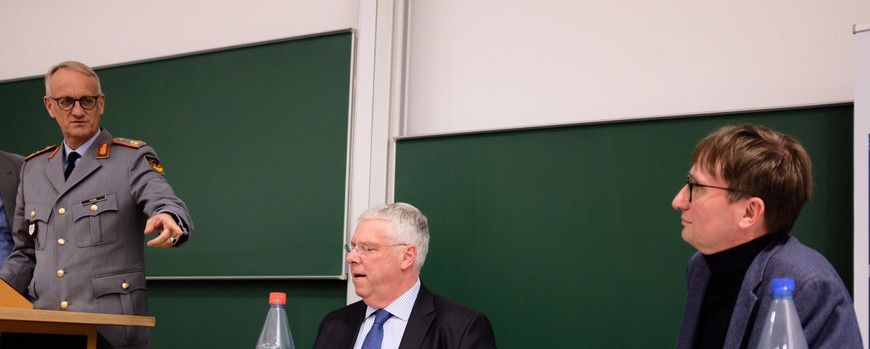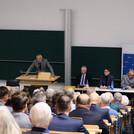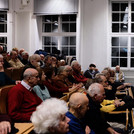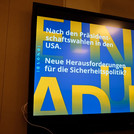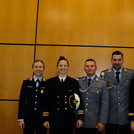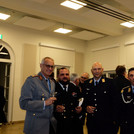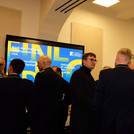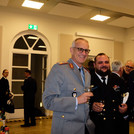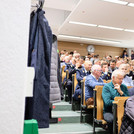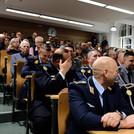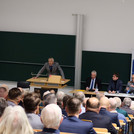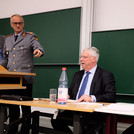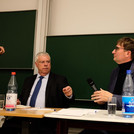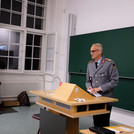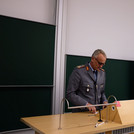07.11.2024: Panel Discussion on Security Policy: After the Presidential Elections in the United States
This year's security policy panel discussion, a cooperation between the Konrad Adenauer Foundation (KAS) and the Chair of War Studies, took place on November 7, 2024 in the Presidential Wing (House 9). The topic of the evening event was the security policy consequences of the presidential elections in the USA. Major General Wolf-Jürgen Stahl, President of the Federal Academy for Security Policy (BAKS), and Jürgen Hardt, MdB, Foreign Policy Spokesman of the CDU/CSU parliamentary group in the German Bundestag, moderated by Prof. Dr. Sönke Neitzel.
It is already clear that Donald Trump's re-election as President will pose new challenges for all regions of the world. MdB Hardt pointed out that the transactional and NATO-critical president will expect a significant increase in Germany's own defense contributions. Support for Ukraine would also have to be intensified, even if the bipartisan consensus in Washington in favor of Kyiv appeared to be unbroken. The German government and the EU Commission must propose concrete deals to the new US administration, then something can be achieved with Trump. But to make matters worse, the German government under Chancellor Scholz is now on the brink of collapse.
General Stahl was very critical of the new administration in Washington. In order to prevent transatlantic alienation, we should not stare doggedly at the two percent goal for the defense budget – but rather think in terms of the required military capabilities and increase the defense budget significantly beyond this target. At the same time, the special fund for the Bundeswehr has almost been used up and the federal budget has not yet been permanently adjusted to the new security policy situation.
Professor Neitzel asked about the specific scenarios in the war in Ukraine and linked this discussion to the setting of priorities in the federal budget, which would be necessary but politically very difficult to implement. He asked whether this should not include a significant reallocation of funds from the social budget. Both participants in the discussion saw the poor military situation in Ukraine, above all because Moscow ascribes little value to human life and is prepared to absorb much higher material and personnel costs. Hardt saw room for manoeuvre in the federal budget and opportunities to refocus the federal budget on defence policy and, for example, to mobilize more private capital in the infrastructure sector to free up federal funds. Neitzel then argued for a Grand Military Reform – similar to the Stein-Hardenberg reforms after 1806 – which would not just require militarization de-bureaucratization but also a change in the social, political and mental environment. This was followed by a lively discussion with the audience, which continued at the reception hosted by the KAS.

